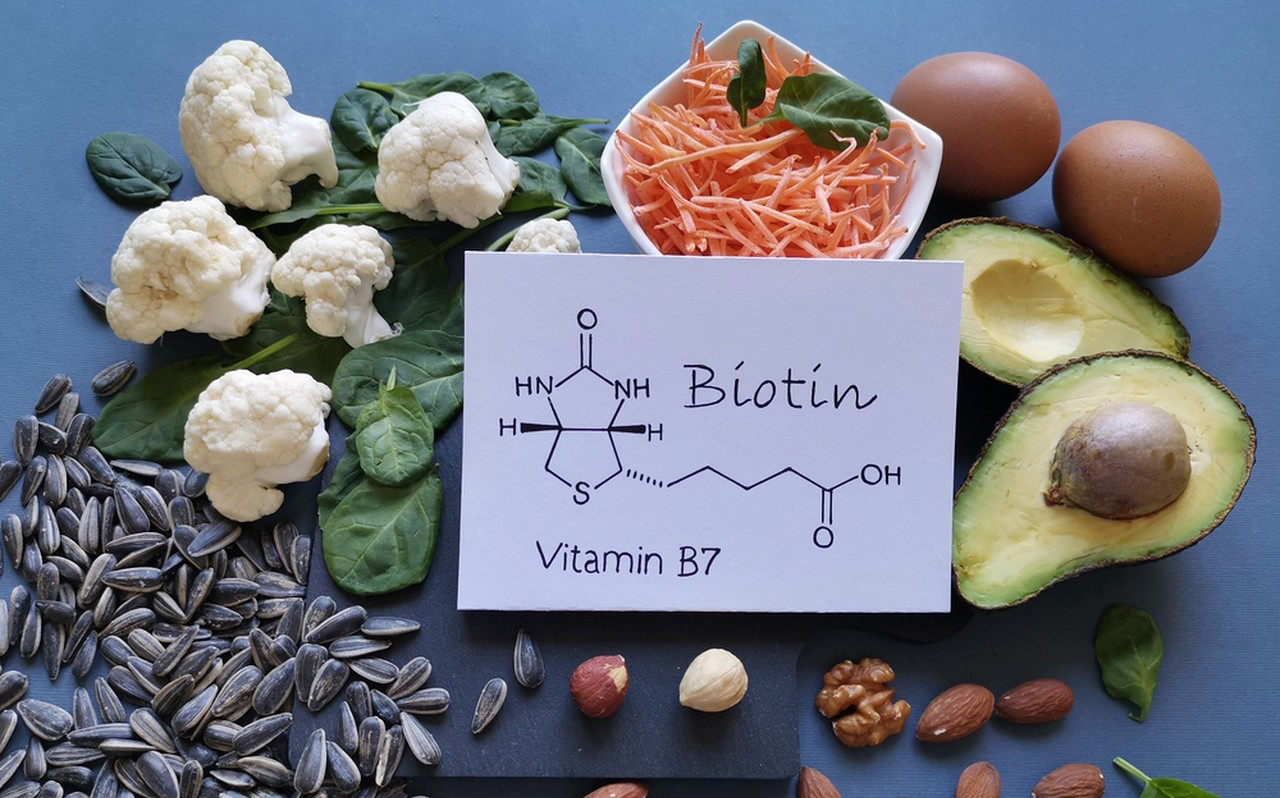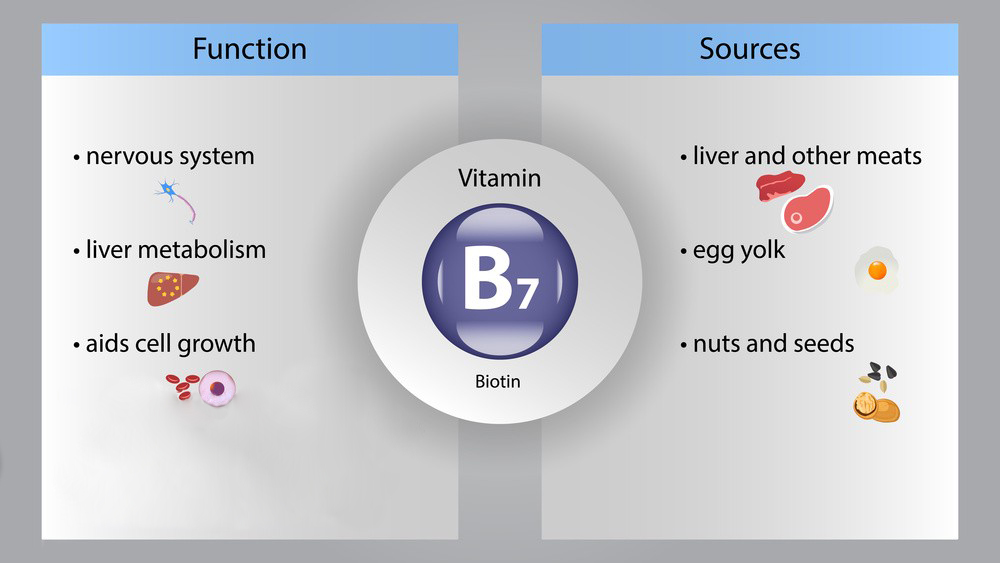Biotin, also known as vitamin B7 or vitamin H, is a water-soluble B-vitamin that plays a crucial role in various metabolic processes within the body. It is an essential nutrient, meaning that it is required for normal physiological functioning but cannot be synthesized by the human body in sufficient amounts. Therefore, biotin must be obtained through the diet or supplements.

Biotin is involved in several key functions:
Energy Metabolism: Biotin helps convert carbohydrates, fats, and proteins from the food we eat into energy that the body can use.
Skin, Hair, and Nail Health: Biotin is often associated with promoting healthy skin, hair, and nails. It is a common ingredient in many beauty and hair care products.
Cell Growth and Repair: Biotin is important for cell growth and division, which is essential for maintaining healthy tissues and for the repair of damaged cells.
Carboxylation Reactions: Biotin acts as a coenzyme in carboxylation reactions, which are necessary for the synthesis of fatty acids, amino acids, and certain other compounds.
Gene Expression: Biotin is involved in the regulation of gene expression, specifically by influencing the activity of certain enzymes that play a role in the transcription of genes.
Biotin deficiency is rare and can lead to symptoms such as hair loss, skin rash, brittle nails, and neurological symptoms. However, severe deficiency is uncommon and is often associated with certain medical conditions or prolonged use of certain medications.
Good dietary sources of biotin include egg yolks, organ meats (like liver), nuts, seeds, dairy products, legumes, and certain vegetables. While biotin supplementation is sometimes used to address specific health concerns, it’s important to consult with a healthcare professional before starting any new supplementation regimen, as excessive biotin intake can interfere with laboratory tests and may have potential interactions with other medications.
The basic ingredients of Biotin
Biotin, also known as vitamin B7 or vitamin H, is a water-soluble B-vitamin that plays a crucial role in various metabolic processes in the body. It’s commonly found in many foods, and the body also produces a small amount of biotin through gut bacteria. The basic ingredients of biotin include:
Carbon: Biotin contains carbon atoms, which are essential for the structure and function of the molecule.
Oxygen: Oxygen atoms are present in biotin’s chemical structure, contributing to its overall composition.
Hydrogen: Hydrogen atoms are also part of biotin’s molecular structure, participating in various chemical interactions and bonds.
Sulfur: One of the unique features of biotin is its sulfur-containing ring structure, which is important for its biological activity.
Nitrogen: Biotin contains nitrogen atoms, which are essential for the formation of amino acids and other important molecules.
Amino Acid Residue: Biotin is often attached to a specific lysine residue within proteins in a process called biotinylation. This attachment is important for the function of biotin in various enzymatic reactions.

Biotinidase: Biotinidase is an enzyme required for the release of biotin from proteins in the diet. It plays
a critical role in making biotin available for absorption in the body.
Biotin Transporters: Biotin is absorbed in the small intestine through specific transporters. These transporters facilitate the uptake of biotin from the diet into the bloodstream.
It’s important to note that while biotin is found in various foods and is produced by gut bacteria, the body’s biotin requirements are relatively small, and deficiencies are rare. Biotin is involved in processes like carbohydrate, fat, and protein metabolism, and it is also known for its role in promoting healthy hair, skin, and nails. If you have specific dietary concerns or health conditions, it’s advisable to consult with a healthcare professional before making significant changes to your diet or supplement regimen.
